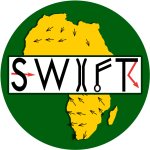Authors: Elias Nkiaka (University of Leeds), Andrea Louise Taylor (University of Leeds), Andrew Dougill (University of Leeds), Philip Antwi-Agyei (Kwame Nkrumah University of Science and Technology), Nicolas Fournier (UK Met Office), Emily Nyaboke Bosire (University of Nairobi), Oumar Konte , Kamoru Abiodun Lawal (Nigeria Meteorological Agency), Bethuel Mutai (University of Nairobi), Emmah Mwangi (Kenya Meteorological Department)
Sub-Saharan Africa (SSA) faces increasing risks from climate variability and change. It is therefore essential to better integrate weather and climate science into societal-decision-making processes to support climate adaptation and build resilience to climate shocks. However, the weather and climate services (WCS) landscape in SSA remains poorly understood partly due to the lack of systematic assessments of users’ needs for WCS especially forecast timescales and lead times and barriers that impede the uptake and adoption of WCS in the region.
This paper uses a systematic literature review approach to answer questions related to forecast timescales and lead times most relevant to users of WCS in SSA and benefits that users derive from using WCS products. The paper also highlights the barriers impeding the successful delivery and uptake of WCS in SSA and provides strategies for overcoming them based on the reporting of successful practices. Overall, our article shows that there is need for greater capacity building of personnel working for national meteorological & hydrological services, in addition to agricultural extension staff and reinforcing and sustaining collaboration between different stakeholders (climate scientists, hydrologists, extension workers, farmers and other user groups) to improve the delivery, expansion and uptake of WCS in SSA.
